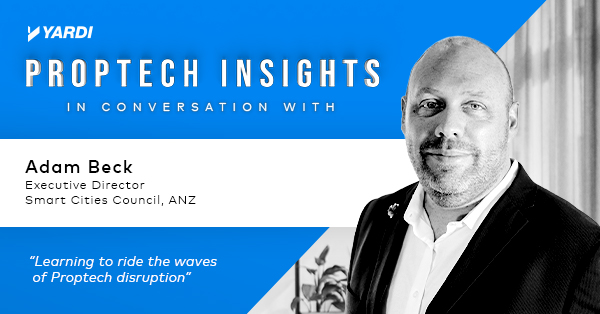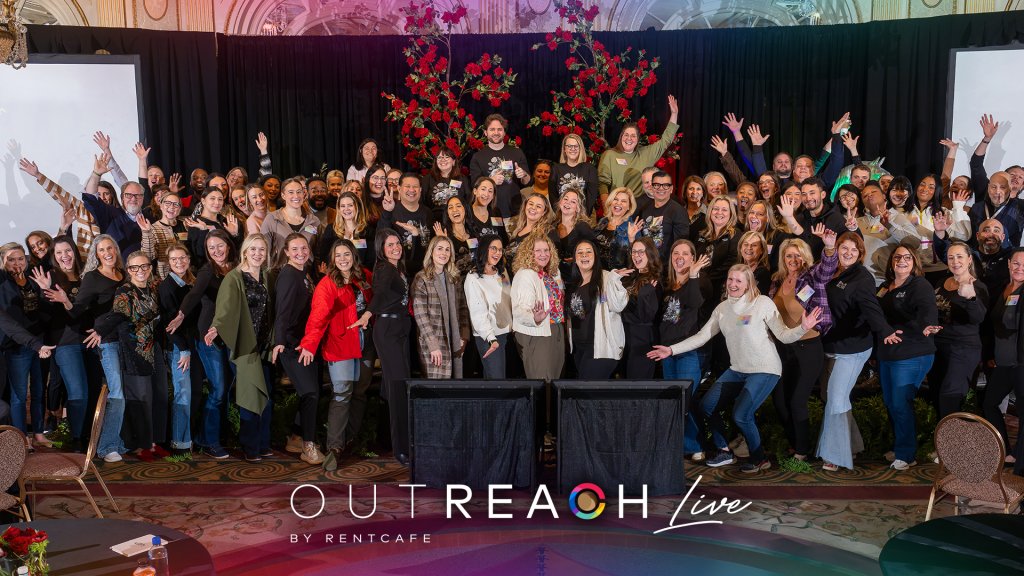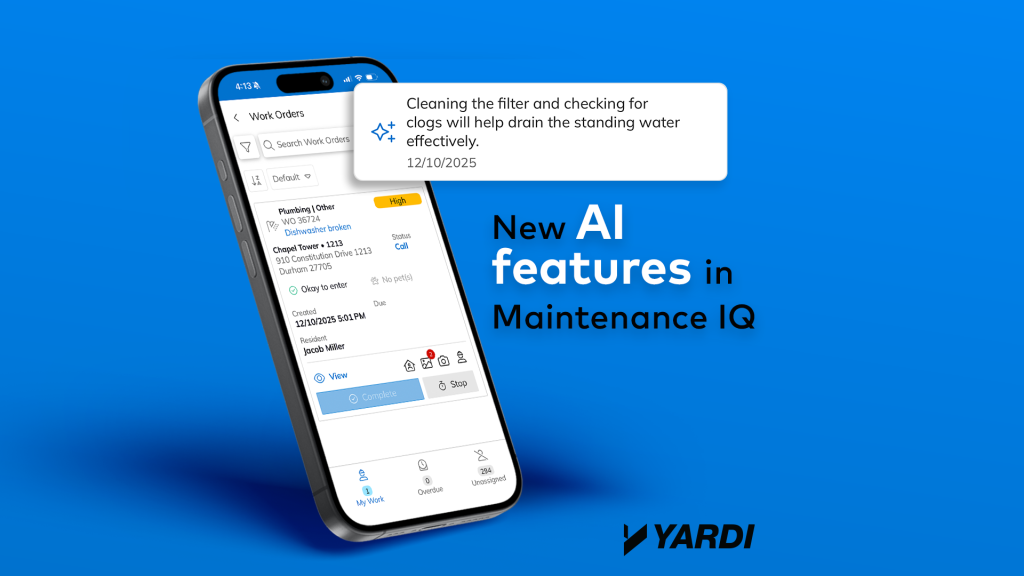By Yardi Blog Staff on March 11, 2022 in Global
What are the biggest, boldest questions that everyone in real estate needs to answer?
Last year, guests on Yardi’s Proptech Insights program shared their secrets to navigating the complex proptech ecosystem. Bernie Devine, Yardi’s Senior Regional Director, asked a lot of questions – and our guests offered many insightful answers.

But to kick off 2022, Bernie and guest Adam Beck turned the tables by posing four provocative questions for the region’s property leaders to ponder over the year ahead.
It’s a unique idea. But Devine and smart cities champion Adam Beck are unique thinkers.
Beck, an urbanist who has championed smart and sustainable cities for more than 25 years, was most recently the Executive Director of the Smart Cities Council for Australia and New Zealand. He was also the architect of the Green Building Council of Australia’s Green Star Communities rating tool and has just launched a new platform, Urbanism.Live, which explores the edges of digital, data and urbanism.
The edge of digital, data and urbanism are exciting. But Yardi’s latest research report, developed in partnership with the Property Council of Australia, found around half of Australia’s property companies are still reliant on spreadsheets to assess the performance of their portfolios. What is the barrier stopping these companies from moving beyond Excel?
“Tech and data are not the challenge or the barrier. It is the people behind the tech and data,” Beck told Devine. Some quarters of the property industry are stubbornly resistant to change, but Beck – “the eternal optimist” – said big obstacles have been overcome before. Take the built environment’s response to sustainability. “It was considered too costly, too risky.” Fast forward 20 years, and markets now place a premium on green buildings.
But this time, we don’t have 20 years, Beck said. The clock is ticking toward 2030 and the world’s net zero emissions imperatives. “If data was a product in a box, the label would say ‘better, faster, cheaper’.”
“Better, faster, cheaper… it doesn’t really fit into a spreadsheet,” Devine added, pointing to recent research which finds the UK’s existing housing stock must be net zero by 2030 for the nation to meet its emissions reductions targets. “If we don’t get our house in order over the next eight years, we’ll build a curve that is too steep to climb,” Devine said.
So, the first big question: What will property leaders do if we get to 2029 and haven’t bent the carbon curve?
Avoiding this conundrum is possible with the help of technology and data, the pair agreed. But at one end of the spectrum sits a digital native who makes every decision with the help of data. On the other is the old-school property professional who relies on “gut feel.”
This “instinct model” will struggle to remain relevant as data “explodes” and as expectations of building users grow exponentially, Devine observed. Digital natives will demand buildings that are “more service oriented and less box oriented.”
“And every new graduate was born with a smart phone in their hand,” Beck added. “We all want the Netflix lifestyle.” This drew out the second big question: How do we redesign our analog buildings for our digital lifestyles?
“If you think of a building as a device, then you think about services differently. It becomes a raft of user experiences that need to be delivered – and delivered absolutely seamlessly,” Devine said.
Beck added a radical suggestion. If buildings are “data collectors” that support better experiences in buildings, this requires a “rethink” of the way we cost, quote and tender for buildings. “We’ve got to get digital and data onto the bill of quantities – and not as an expense item.”
Data is only valuable if it is information turned into insights, Devine noted – and this led to the third question: When does ESG – environment, social and governance –become ESGD? (D for Data.)
“Data is transparency. I think that’s why some people are steering clear of data. Because it tells us the truth,” Beck said. And the truth, in many cases, is “truly shocking” and reveals an industry and a business model “built on waste.” What is stopping us from adopting the technology that would allow us to reduce the waste? Is it business models themselves?
Four big questions. Do you have any answers? Let us know and we’ll continue the conversation in 2022 in the Yardi Proptech Insights.


